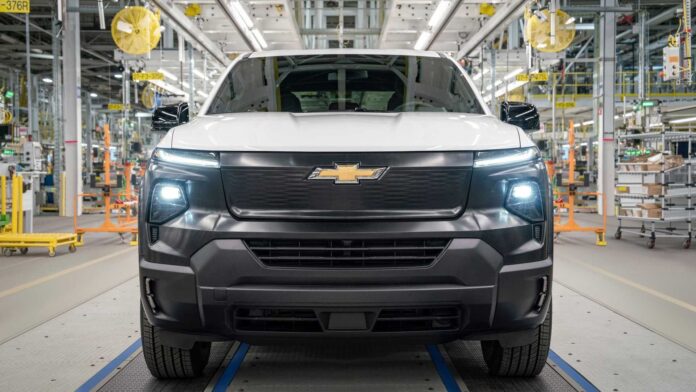General Motors (GM) is intensifying efforts to reduce its reliance on Chinese suppliers, directing them to secure raw materials and components from alternative sources by 2027. This move reflects growing geopolitical tensions and a broader industry push for supply chain resilience amid escalating trade uncertainties.
Strategic Realignment Amid Rising Tensions
The directive, reported by Reuters, is a continuation of initiatives begun late last year to diversify sourcing. The United States has already taken significant steps to restrict Chinese imports, including a 100% tariff on Chinese electric vehicles, and further trade barriers could emerge as political pressure mounts.
GM CEO Mary Barra has emphasized the importance of “supply chain resiliency” in recent investor calls, signaling a long-term commitment to reducing reliance on a single country. The urgency stems from the unpredictable nature of US-China relations, where tariffs and policy shifts can disrupt operations overnight.
A Decades-Long Entrenchment
The automotive industry has become deeply integrated with China over the past 25 years, making a rapid transition complex and costly. Finding alternative suppliers, unwinding existing contracts, and establishing new production lines will take time and investment. These costs are likely to be passed on to consumers, contributing to already rising vehicle prices.
Beyond China: Additional Restrictions
GM’s directive extends beyond China, explicitly discouraging suppliers from sourcing materials from Russia and Venezuela. The full scope of restricted countries remains unclear, but the move underscores GM’s broader strategy of avoiding politically unstable or adversarial nations.
The Broader Industry Trend
GM’s actions mirror a growing trend among automakers to de-risk supply chains. While China remains a critical part of the automotive ecosystem, companies are actively exploring alternatives in North America, Europe, and Southeast Asia. This shift is driven by both geopolitical concerns and the desire for greater operational control.
Implications for Consumers
The transition away from Chinese suppliers will inevitably impact vehicle prices. Higher sourcing costs, coupled with potential disruptions during the shift, could push up the cost of new cars. Consumers may face limited options if automakers prioritize supply chain security over affordability.
The move is a long-term bet on stability, even if it means short-term economic pain. GM is betting that a more secure supply chain will outweigh the immediate costs, and that consumers will ultimately value reliability over rock-bottom prices.
The shift away from China is not just a business decision; it’s a geopolitical realignment that will reshape the automotive industry for years to come

































